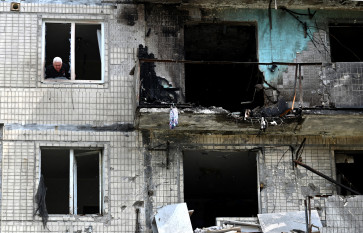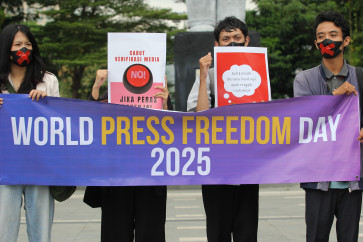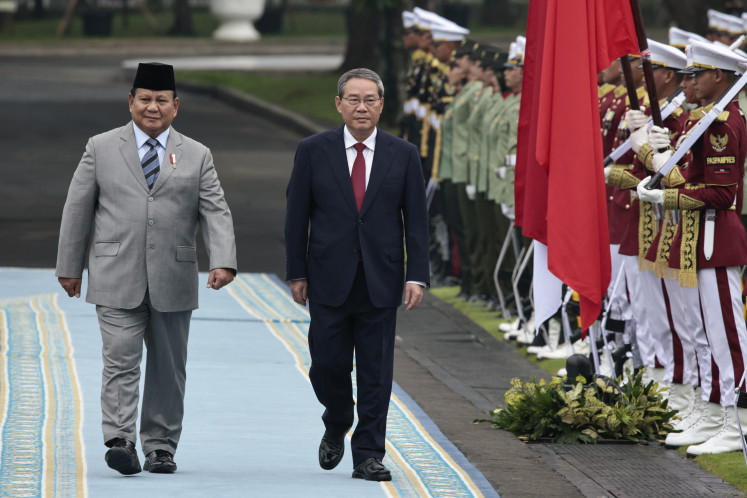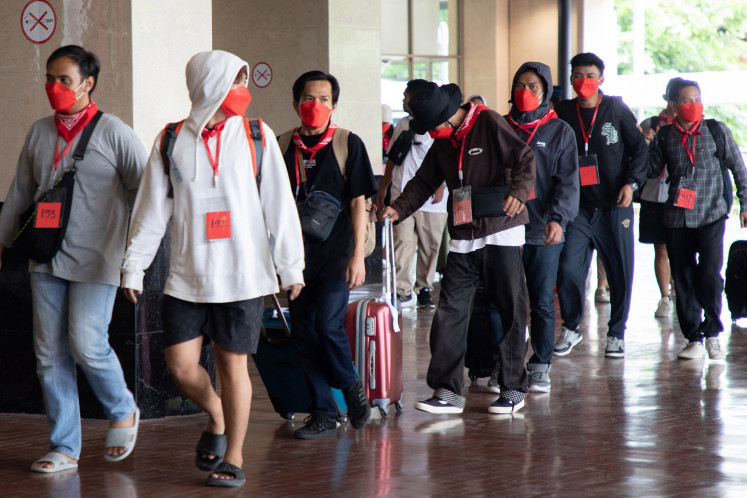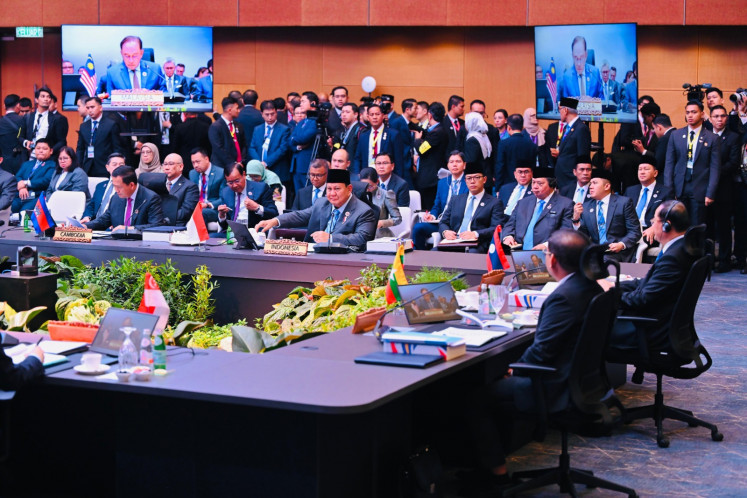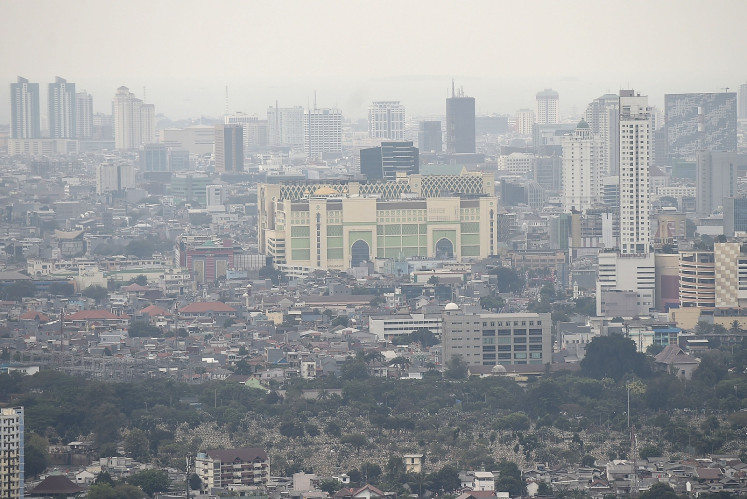A civilizational response to Islamophobia and Sinophobia
The upcoming ASEAN-GCC-China Summit, hosted under Malaysia's ASEAN chairmanship, seeks to address the civilizational "diseases" of Islamophobia and Sinophobia by drawing on the traditional values and wisdoms of Islam, Confucianism and their confluence in the Malay region.
Change text size
Gift Premium Articles
to Anyone
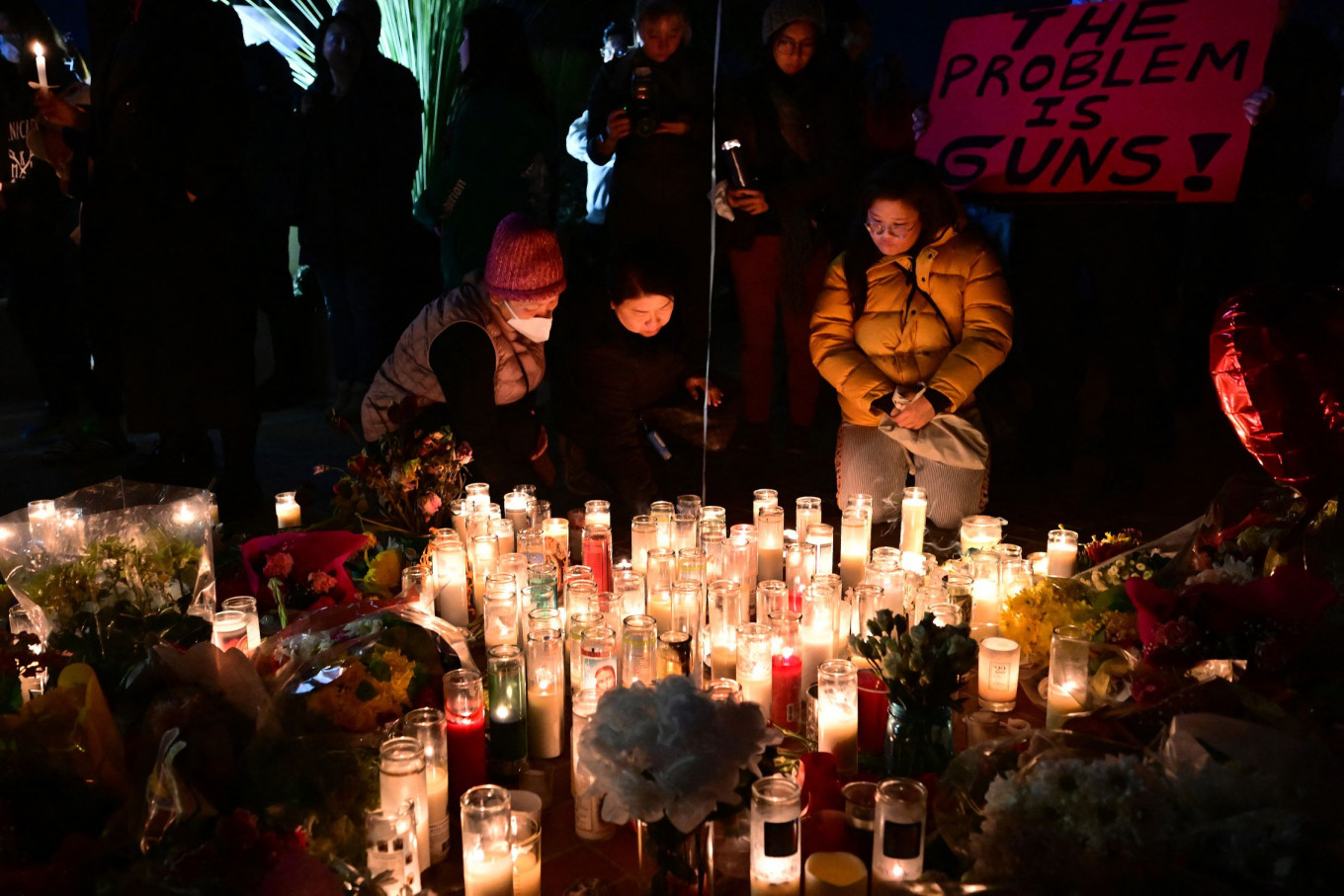 People take part in a candlelight vigil at Monterey Park City Hall on Jan. 24, 2023, three days after 11 people were gunned down in a mass shooting at the Star Ballroom Dance Studio in the Asian-majority city near Los Angeles, California. (AFP/Frederic J. Brown)
People take part in a candlelight vigil at Monterey Park City Hall on Jan. 24, 2023, three days after 11 people were gunned down in a mass shooting at the Star Ballroom Dance Studio in the Asian-majority city near Los Angeles, California. (AFP/Frederic J. Brown)
X
enophobia, fear of the “other” out of pure ignorance and prejudice, is on the rise. The most visible current manifestations of xenophobia are Islamophobia and Sinophobia. Xenophobia is a civilizational disease. As such, a civilizational response is needed to cure it.
The United Nations General Assembly has recognized, by consensus, the growing dangers of hatred based on religion. Yet Islamophobia is not the only form of intolerance spreading across continents. Sinophobia, or prejudice and hostility toward China and the Chinese people, has also escalated, often fueled by geopolitical rivalries and trade conflicts.
This is the sobering context in which a joint summit involving ASEAN, the Gulf Cooperation Council (GCC) and China will be held in Kuala Lumpur this week.
Hosted under Malaysia’s ASEAN chairmanship, this summit is more than a high-level diplomatic gathering. It is, at its core, a civilizational response: an attempt to push back against the forces of ignorance, fear and hate. The convergence of the Islamic world, the Confucian tradition and the Malay Archipelago (Nusantara) offers an opportunity to present a model of pluralism rooted in mutual respect, spiritual heritage and regional solidarity.
It is no coincidence that the summit is being hosted in Malaysia, a nation historically situated at the confluence of Islamic and Confucian civilizational influences. As a Muslim-majority country with a significant Chinese population, Malaysia has long stood as a living example of how the Confucian values of harmony and filial piety can coexist with the Islamic principles of justice, tawhid (unity) and mercy.
Indeed, at a time when global headlines are dominated by cultural clashes and identity politics, the ASEAN-GCC-China Summit seeks to remind the world of shared traditions of wisdom. It is not a celebration of nostalgia, but a vision of resilience and coexistence.
From The Analects of Confucius to the Islamic concept of rahmatan lil aalamin (mercy to all creation), these civilizational heritages have historically advocated peaceful order, ethical governance and respect for knowledge and the sacred. Together, they can offer a powerful antidote to both Islamophobia and Sinophobia, which stem from fear of the "other" and are often weaponized by political actors seeking to divide societies.
Islamophobia has become dangerously normalized in Western political discourses, manifesting in immigration bans, surveillance regimes, desecration of religious symbols and selective human rights narratives. At the same time, Sinophobia has accelerated since the COVID-19 pandemic, particularly in the context of the United States-China strategic competition.
Western political rhetoric often conflates legitimate criticisms of policy with wholesale cultural disparagement, reducing entire civilizations to caricatures. The result? A new cold war of civilizations, driven not by ideology but by cultural essentialism and exclusion.
This is why the ASEAN-GCC-China Summit is timely. It presents an interregional, inter-civilizational response. It repositions Asia, in both its Islamic and Confucian dimensions, as a space of ethical agency, not passive victimhood.
It is often said that diplomacy is the art of the possible. But diplomacy grounded in ethical civilizational values can expand what is possible.
The teachings of Al-Ghazali, the towering Islamic philosopher of ethics, and the wisdom of Confucian thinkers such as Xunzi and Mencius, both emphasize the moral cultivation of leaders. In an age of technocracy and populism, this summit seeks to inject moral vision back into diplomacy.
By bringing together the GCC, representing the heart of the Arab-Islamic world, ASEAN as the bridge of maritime Asia and China as a Confucian-rooted civilization state, this summit reconfigures diplomacy beyond the Western-centric framework. It affirms that Asia can produce values-based diplomacy without mimicking European-American ideological templates.
Under the leadership of Prime Minister Anwar Ibrahim, Malaysia has taken a moral stand, not only calling out Islamophobia but also warning against rising Sinophobia. His consistent advocacy of civilizational dialogue and international justice now finds institutional expression in this summit.
On June 16, the International Islamic University of Malaysia (IIUM) will host the leadership of the International Confucian Association (ICA) from Beijing for a Track II Diplomacy event featuring former deputy prime minister Datuk Seri Wan Azizah and former Chinese vice premier Sun Chun Lan.
Critics may ask whether such summits or events may achieve anything beyond symbolic gestures. To this, we reply that symbols matter, especially when they resist the narrative of civilizational conflict.
Moreover, this summit will lay the groundwork for institutional innovation. Already, discussions are underway to establish civilizational research centers, shared platforms for halal and green technologies and frameworks for interfaith educational exchanges. More tangibly, the summit is expected to push for initiatives in trade, digital connectivity, infrastructure and energy security.
But unlike past economic dialogues driven solely by profit motives, the ASEAN-GCC-China Summit anchors economics within ethics, emphasizing sustainability, equity and social justice.
ASEAN remains a nonaligned, consensus-based organization. Its strength lies in its quiet diplomacy and its ability to convene competing powers without coercion. At the upcoming summit, ASEAN plays the role of convener, not competitor, enabling China and the GCC to engage one another in a spirit of shared humanity.
Invariably, the concept of Nusantara, a combination of the old Malay word nusa (island) and the Sanskrit word antara (inter) to mean interisland, is key to the understanding of the maritime archipelagic civilization of the Malay and Indonesian worlds over the ages.
It reminds us that Southeast Asia was never a vacuum but a vibrant node where Indian, Islamic, Confucian and Western ideas met, clashed and harmonized. From the voyages of Zheng He to the Islamic empires of the Malay world, this region has historically stood at the intersection of civilizational pathways.
In that spirit, both the ASEAN-GCC-China Summit and the IIUM-ICA dialogue must also serve as a platform to denounce and dismantle the structures of hate that feed Islamophobia and Sinophobia, whether online disinformation, media stereotyping or discriminatory policies. More ambitiously, it can lead to a collective ideal to create the Asia Zero Emission Community (AZEC).
This summit should not be viewed as a panacea, but we do believe it offers a critical corrective. The world is too interconnected – and too vulnerable – for civilization-based enmity to dominate international affairs. Let the ASEAN-GCC-China Summit be remembered not only for its declarations or infrastructure pledges but also for its message that, in an age of rising hate, Asia’s civilizations still dare to lead with wisdom.
***
Osman Bakar is Al Ghazali Chair of Epistemology and Civilizational Studies and Renewal at the International Institute of Islamic Thought and Civilization of International Islamic University of Malaysia (ISTAC-IIUM) and rector of IIUM, where Phar Kim Beng is a professor of ASEAN Studies.



